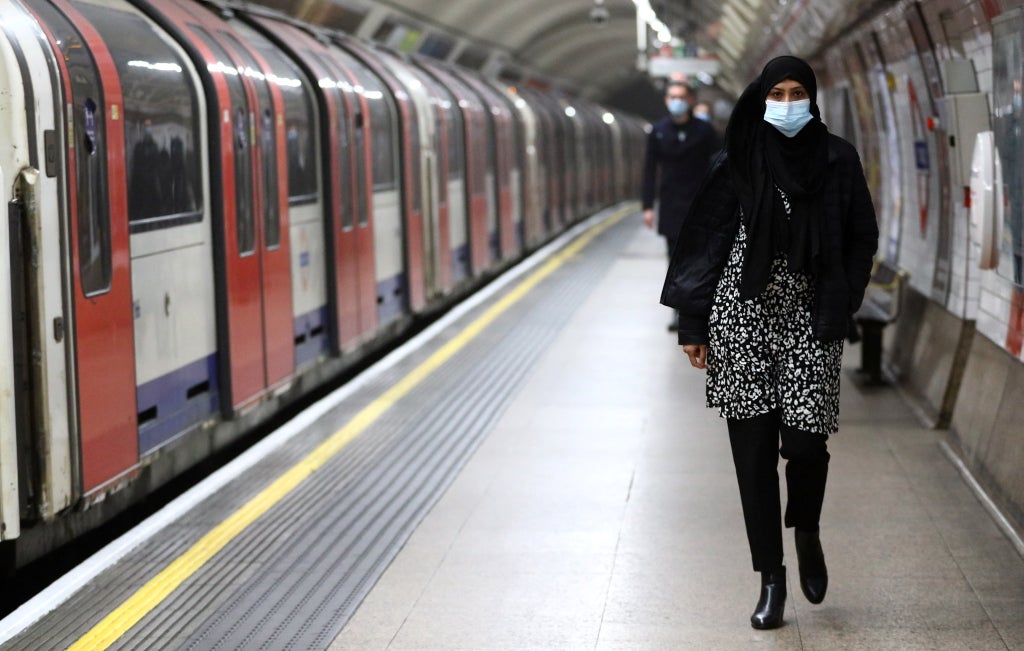
The Omicron variant of Covid-19 has spread around the world at a rapid pace since it was first discovered in southern Africa in November but there is still a great deal we do not know about it.
More data is needed to determine its precise characteristics and how it responds to our existing coronavirus vaccines, but what seems beyond doubt is that it is more transmissible than any previous strains we have encountered over the course of the pandemic so far, including the Alpha and Delta variants.
Omicron has been detected in at least 110 countries to date, with the likes of the Netherlands, Germany and South Korea reimposing lockdown measures to slow its spread.
The UK has continued to experience extremely high levels of Covid infections across the festive period, with total daily cases in England rocketing to a pandemic high of 218,724 on 4 January, according to the UK Health Security Agency.
One aspect of the Omicron variant that has become clear over the last few weeks is how it differs from the original Covid strain.
While the World Health Organisation estimated that symptoms took anywhere between two days to two weeks to materialise in cases of people infected with the first coronavirus strain, the Omicron variant is thought to incubate much faster, closer to three to five days.
“Recent analysis from the UK Health Security Agency suggests that the window between infection and infectiousness may be shorter for the Omicron variant than the Delta variant,” UK health secretary Sajid Javid told MPs on 6 December.
That would explain why it has spread so swiftly and successfully, as the shortness of its incubation period gives sufferers a shorter window between suspecting they have contracted the virus and experiencing a flare-up, making it less likely a positive test result will be recorded in time to warn others, enter isolation and prevent the contagion being passed on.
A shorter incubation period “makes a virus much, much, much harder to control,” Jennifer Nuzzo, an epidemiologist at the Johns Hopkins Center for Health Security, warned The Atlantic recently.
Another characteristic of Omicron that makes it potentially harder to detect than other strains is that its symptoms differ somewhat from the three primary indicators we have learned to be on the lookout for: coughs, fever and any loss of sense of taste or smell.
Early warning signs for the new variant, by contrast, include a scratchy throat, lower back pain, a runny or blocked nose, a headache, muscle pains and fatigue, sneezing and night sweats.
The current evidence from Omicron cases analysed in Britain is that patients will recover within five days to a week on average, although some of the symptoms like coughing and fatigue may linger for longer.
Shortness of breath has also been reported in more severe cases, which has been seen to last for as long as 13 days after.
Covid sufferers are, typically, thought to be infectious to others from around two days before their first symptoms start to materialise and for around 10 days after.
If you believe you have symptoms of either Omicron or the still-dominant Delta variant, the current NHS advice is to get a PCR test as soon as possible and to self-isolate at home to protect others.
Our best hope against Omicron at present collectively is to take up the offer of a vaccine booster jab, which has now been rolled out to all adults in the UK, as studies have shown that three shots are likely to offer a far greater degree of immunity against the new strain that just two.
But, as Mr Javid told the BBC’s final Andrew Marr Show, there are “no guarantees in this pandemic”, so the public are also advised to adhere to the restrictions currently in place including mask-wearing in public spaces, abandon unnecessary social commitments this winter and exercise extreme caution.







